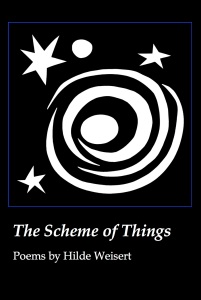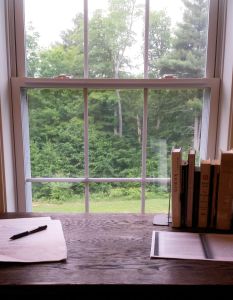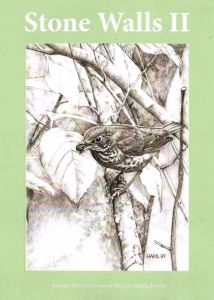It was a pleasure to share a “literary launch” at the Sandisfield Arts Center last Saturday with Antonia Lake and the readers from Stone Walls II, the handsome new journal of the literature and art of the western Massachusetts hilltowns.
Also a pleasure was the wonderful, attentive, responsive audience from our town and around western Mass and Connecticut, North Carolina, and, in the case of an old and dear friend, California. You never know about poetry readings, especially on a gorgeous early Fall day at 4 in the afternoon, so when I discussed the chair setup with the coordinator Barbara Elton* I estimated, crossing my fingers, something between 25 and 35. At about 5 minutes to 4, all 35 seats were taken and a few helpful souls were putting out extra chairs. A friend later told me she counted 50 people. Because this is Sandisfield, if we’re lucky (and we were) we get local residents who would be dignitaries most anywhere, like Simon Winchester and Ben Luxon. People who braved the drive from points west included the poet Irene Willis, who I was delighted to meet (although we agreed we must have met when we were both in New Jersey and Geraldine Dodge Poets), and the indefatigible Jenny Browdy, founder of the Berkshire Festival of Women Writers and a continuous inspiration to the writing community here.
I think something clicks when you have such an engaged audience. Beginning with Susie Crofut’s introduction, the afternoon rolled along with literary grace, humor, warmth, and the pleasures of unexpected connection. One thing we forgot was a written program so the audience could follow along with the readings as well as with the words. I’ll remedy that now, with a recap and a few annotations.
After an introduction by magazine poetry editor Toni Lake, Evan Johnson of the editorial board gave a brief history of the journal. Stone Walls II is a successor (thus the “II”) to the original Stone Walls, a regional journal begun in 1975 to showcase the rural character and creativity of the western Massachusetts hilltowns. “From the humble distribution of a few copies, it quickly grew to over 500 copies published quarterly with 200 regular subscribers,” in print until 1993. Stone Walls II is the creation of “a group of people that fondly remember this valuable contribution to the folklore of Western Massachusetts.”
Toni then talked about and read from the first issue’s interview with Cummington Poet Laureates (yes, one town, two Laureates) William Jay Smith and Richard Wilbur. For anyone who cares about poetry, this interview, done by Toni and Patty Kimura — informal, wide-ranging, personal — is thrilling.
William Jay Smith died this August and we were lucky to hear a remembrance from the person who worked with him for years and until his death, his Literary Assistant Patty Kimura. We learned of his extraordinary span of professional life — in the last months of his life, at age 97, he was still writing! Here’s what Patty said about that:
The tribute ended with Patty reading Smith’s well-known, powerful poem, “Invitation to Ground Zero.”
Other selections from the journal were read by their authors or, if they were unable to attend, by members of the editorial board:
Helena Alves read Lisa McLoughlin’s “To Build a House in a Forest.”
Evan Johnson read from Paula Schmidt’s “Mud Season.”
David Giannini read his prose-poem, “Epithalamium.”
Julie Britton read her poem, “There is a Moment.”

THE SCHEME OF THINGS
In the second half of the program, I read poems from my just-off-the-press poetry collection, The Scheme of Things. A few below have audio or video clips (production values not so great).
“The Certainty of Others”
Grandfather, Balloon (on Vimeo) epigraph: “How deep is the ocean”
“The Transit Hall on Pier 86”
“Tuckerman: The Line”
“Finding Wilfred Owen Again” (print version online)
“The Best Funeral Ever” (print version online)
“March Ladybugs,” “The Year of Reading Yeats,” and “Wake-Robin Trillium” – audio recording (the word mumbled at the beginning is “vacuum” as in the ritual of vacuuming up ladybugs on sunny winter days):
CONVERSATION
Finally, we gathered downstairs in the Gallery where wine, seltzer, cheese and other snacks, plus the many literary and personal connections discovered or renewed, kept people happily conversing and noshing for almost an hour. (This is the sign of a good poetry reading!) Patty Kimura remarked on the number of people she talked to who had a connection with Bill Smith, whether as his student at Williams College or a colleague at Princeton, interested in her insights into the last chapter of his life.
* Bits and Pieces, a show of Barbara Elton’s striking “deconstructed” quilts and Lucinda Shmulsky’s assemblages opens at the Sandisfield Arts Center October 3.



